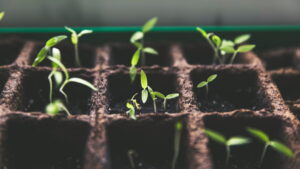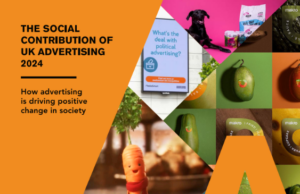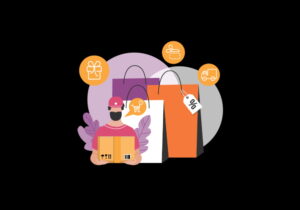In 2021, it has become clear that the pandemic has changed the face of UK retail forever.
Research from IMRG reveals online retail sales grew by 36% in 2020. What’s more, a poll from Brightpearl revealed that two thirds (65%) of shoppers are planning to increase their online shopping spend in 2021, and one fifth (20%) will only shop online within the next five years. Furthermore, 45% of consumers are now buying things online that they only previously bought in-store, and two fifths (40%) of buyers are less likely to shop in-store than they were before the pandemic.
Andy Cockburn, CEO and Co-Founder of referral marketing platform Mention Me, says: “Consumers across every demographic have bought more online in 2020; even ‘digitally native’ Gen Z shoppers were buying items that they had never previously bought online. Consumers’ eyes have opened to the vast array of options available, as well as the unnecessary inconvenience of having to go in-store. Even when non-essential stores reopened last summer, online orders across these sectors remained up year-on-year.”
Beth Oddy, UK Sales Manager at branded content platform Tribe, says: “As marketers adapted to the first lockdown and slowly started to return and test activations, we saw them doing so almost solely online. With digital, they could use small budgets, test, pivot messaging and be reactive and agile, should they need to be. Alongside this, we also saw a huge rise in online presence generally, with consumers having more time on their hands, craving connection and human interaction, as well as seeking out their favourite brands online.”
Surprise developments
Cockburn believes that, in the absence of being able to physically hug friends or relatives, sharing exclusive offers for brands that could make them smile in a tough time became an appealing alternative: “At present, new customer conversions from referrals are up 20% year-on-year. With everything about our normal lives thrown up in the air, people have been more open to discovering new online brands and treating themselves, be that to a wine-tasting kit, houseplant, post-lockdown outfit or anything in between.”
Another notable trend of the last year, according to Oddy, is the rapid rise of social commerce, particularly the way Instagram (IG) is positioning itself to take on ecommerce giant Amazon.
She says: “It’s been amazing to watch the development in this space. The friction that currently exists around ecommerce including the path to purchase, tracking ROI, personalisation and volume and variety of content, can and will be solved by customers and the social commerce launches to come this year.
“As it stands, branded content ads on IG allow brands to transform their top performing creator content into a paid ad. However, the fact that you currently need to leave the IG app and go to a brand’s website to complete the transaction, makes the path to purchase lengthy and can result in a loss of interest.”
This, says Oddy, is where the soon-to-launch IG Checkout comes in. “IG will store payment details, clothes sizes and so on, and allow you make purchases directly from the IG app. Then, later this year, the introduction of Shopping from Creators will allow IG users to purchase directly from the posts of the creators they follow and love.
This is huge for the industry as it tackles the issue of engagement fraud head-on. You can’t fake a sale. It means we could see a shift from pay per post to pay on performance.”
Winners and losers
Oddy points to the fact that some of the sectors worst hit by the pandemic, such as the hospitality sector, have also seen some huge success stories, with many restaurants offering ‘make at home’ kits and adding their services to apps such as Uber Eats & Deliveroo: “Companies like Lockdown Liquor Co, who started delivering at-home cocktail kits in April 2020 in response to the pandemic, have shown success is always possible if you are responsive and agile enough.”
Cockburn agrees that smaller pure-play and direct-to-consumer online brands have leveraged ecommerce particularly well, rapidly adapting to consumer needs to drive short-term revenue, while visibly living out brand values that contribute to long-term loyalty.
He says: “Our client ODDBOX, for example, implemented a referral programme late last year after experiencing a surge in online orders. By incentivising its rapidly growing customer base to refer friends and family, the fruit and veg provider has since acquired thousands of high-value customers and driven significant revenue.”
“It’s also been heartening to see a number of online brands leverage their sudden growth for the good of society. When online orders started soaring for letterbox flower delivery service Bloom & Wild a year ago, it donated 15% of select sales to the National Emergencies Trust Coronavirus Appeal.
Likewise, Pasta Evangelists introduced a care package for shoppers to order directly to the door of loved ones, with £5 from every sale donated to AgeUK. As well as providing hope in a difficult time, actions like these go a long way in building emotional brand affinity that will drive long-term revenue.”










